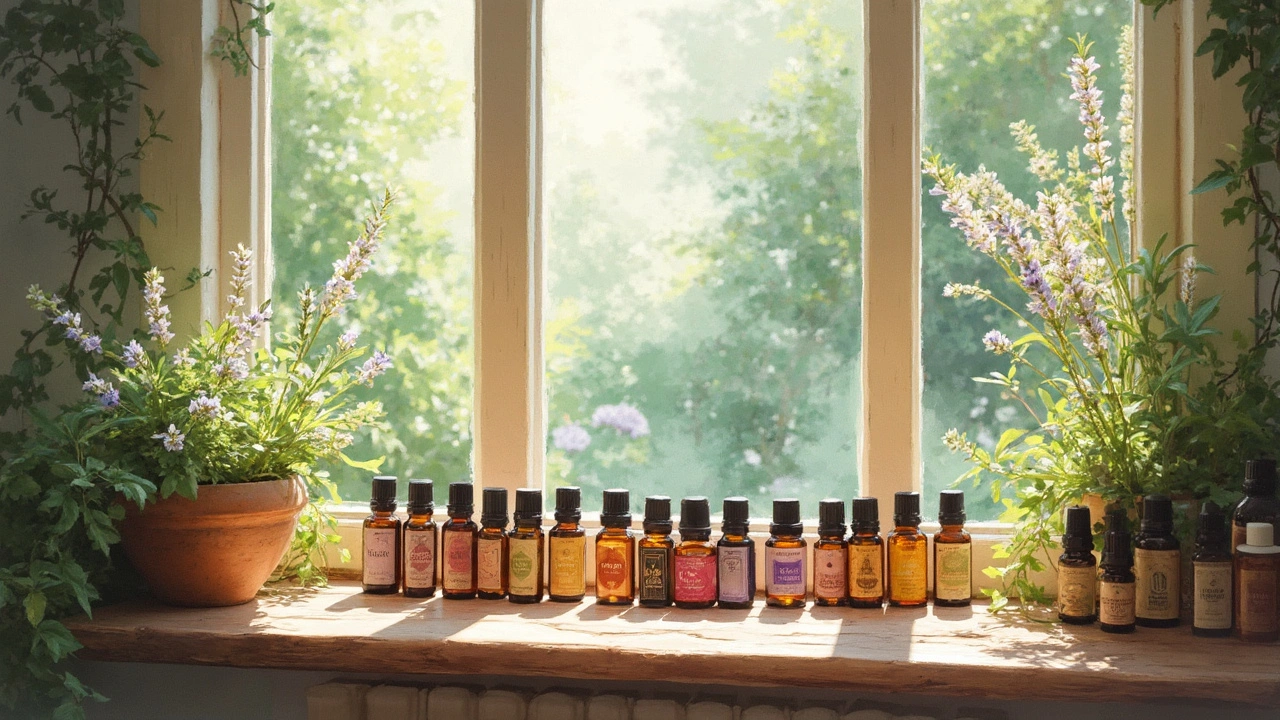Herbal Oils in Massage: What They Do and How to Pick One
If you’ve ever walked into a spa and smelled lavender or eucalyptus, you’ve felt the power of herbal oils. They’re not just perfume – they actually change how a massage feels. A good oil can loosen tight muscles, calm nerves, and leave your skin soft.
Most London therapists keep a few staple oils on hand. Lavender is the go‑to for relaxation, peppermint adds a cooling buzz for sore back muscles, and rosemary boosts circulation. You’ll also see tea tree for its antibacterial properties and eucalyptus when the goal is deep breathing relief.
Why Herbal Oils Matter in Massage
First, herbal oils carry active compounds that slip into the skin. That means the benefits don’t stop at the surface. For example, menthol in peppermint triggers cold receptors, which reduces pain signals. Meanwhile, linalool in lavender lowers cortisol, the stress hormone, so you walk out feeling calmer.
Second, the scent matters. Our nose is linked to the limbic system, the brain area that handles emotions. A pleasant aroma can trigger a happy response, making the whole session feel more restful. That’s why many clients request a specific scent before booking.
Finally, herbal oils protect the therapist’s hands. Pure carrier oils like sweet almond or jojoba prevent skin cracking and make gliding easier. Mixing a few drops of an essential oil into a carrier gives you the therapeutic boost without the sting.
Choosing the Right Herbal Oil for Your Session
Start with your goal. Want to unwind? Go for lavender or chamomile. Need to tackle a knot? Try rosemary or ginger‑infused oil. If you have skin sensitivities, stick with a hypoallergenic carrier and test a small patch first.
Look at the concentration. A typical blend is 2–3 drops of essential oil per tablespoon of carrier. Too much can irritate, especially on broken skin. Ask your therapist how they mix their oils – reputable London therapists will be transparent.
Consider the source. Organic, cold‑pressed oils retain more of their natural compounds. Cheap synthetic blends lose potency and can smell harsh. When you search our directory, you’ll see listings that mention “organic herbal oils” or “therapeutic grade,” which helps you pick a trustworthy practitioner.
Ask about custom blends. Some therapists will tailor the mix to your needs, combining lavender for relaxation with ginger for circulation. That personal touch can make a big difference if you have specific aches.
Finally, think about the setting. Outcall massage at home often uses lighter oils that absorb quickly, while a spa treatment might favor richer oils for a longer glide. Knowing where you’ll be massaged helps you decide what texture feels best.
Herbal oils aren’t a one‑size‑fits‑all, but they’re a simple way to turn a regular massage into a therapeutic experience. Use the tips above, browse our London massage directory for therapists who list their oil choices, and you’ll be set for a session that smells as good as it feels.
Discover the Healing Power of Aromatherapy Massage
Aromatherapy massage combines essential oils and massage techniques to offer a range of healing benefits for the mind and body. Experience relaxation and stress relief while enhancing your mood and well-being. The use of different oils can target specific health issues, offering a personalized experience. Discover what to expect during an aromatherapy session and learn practical tips for making the most of this therapeutic practice.
VIEW MORE
